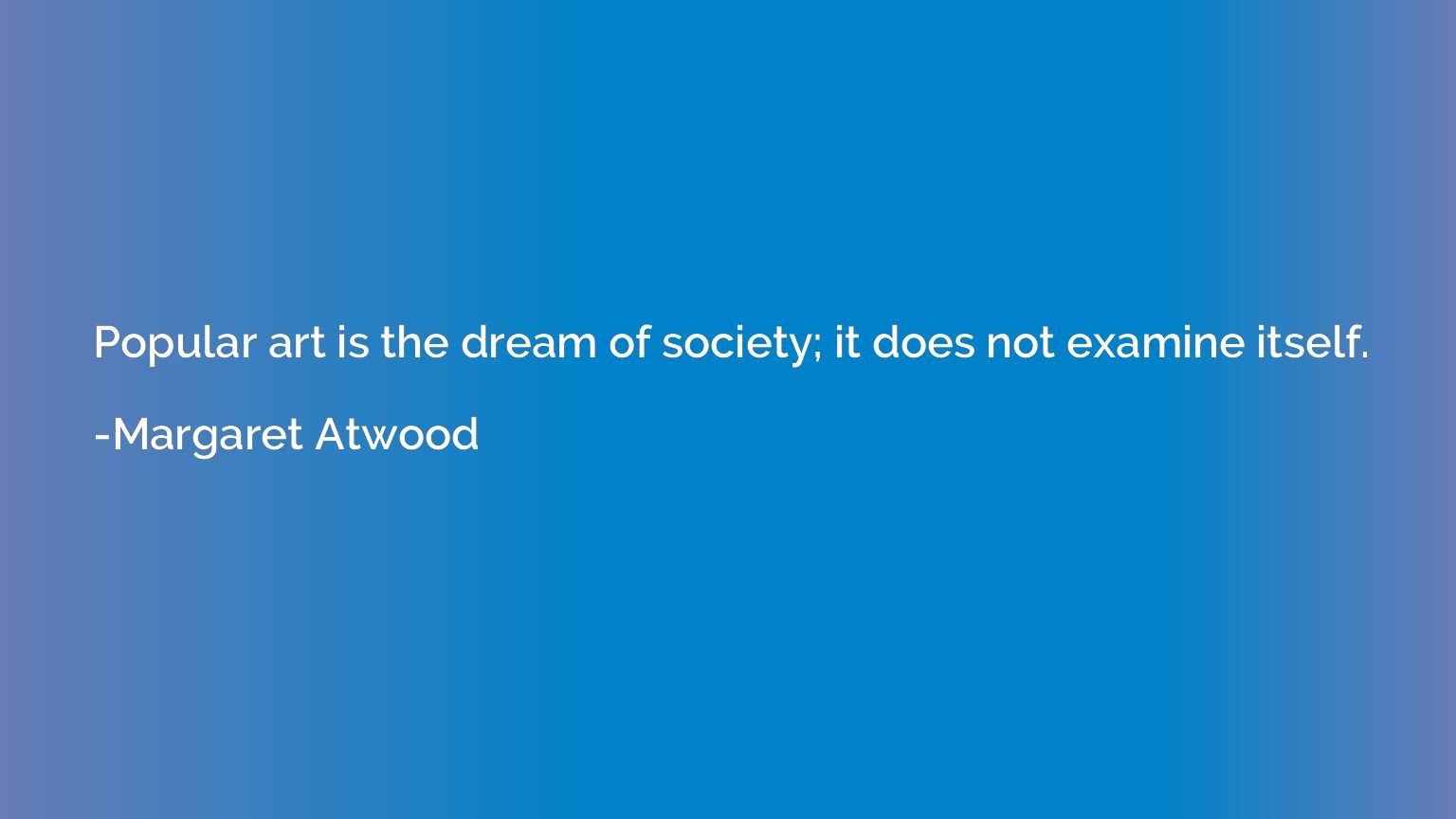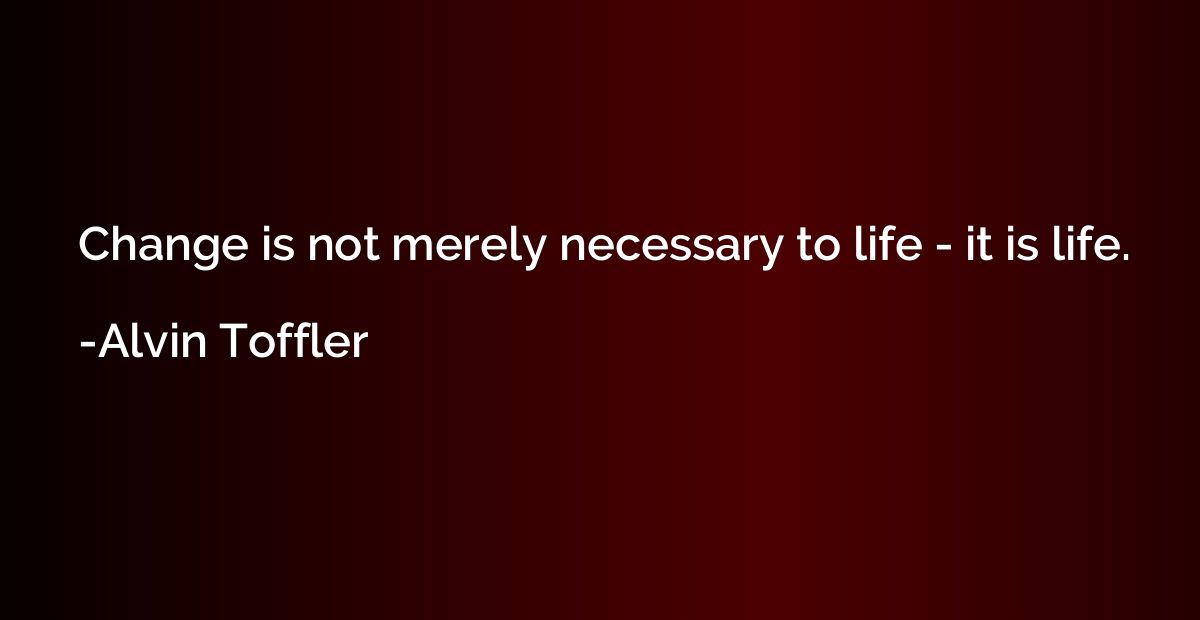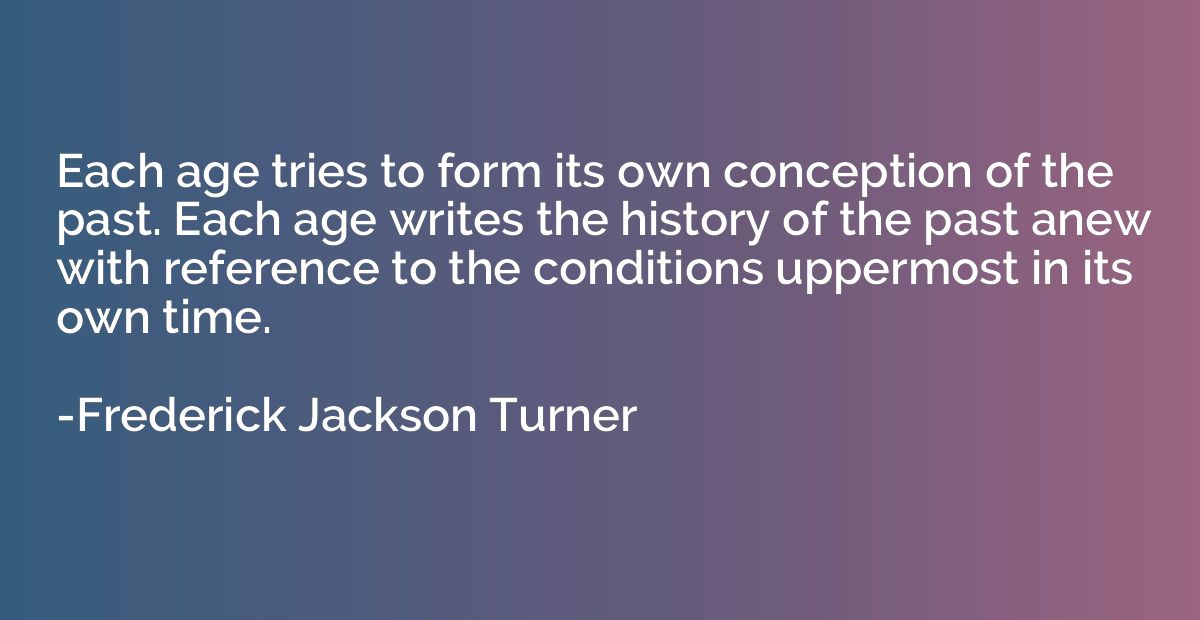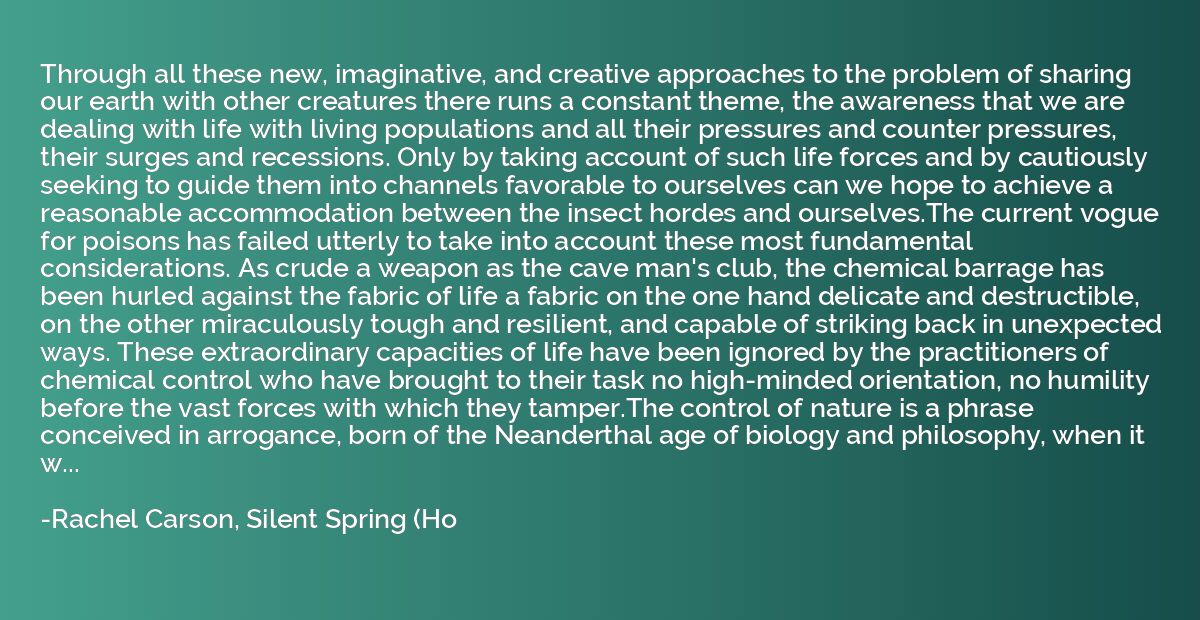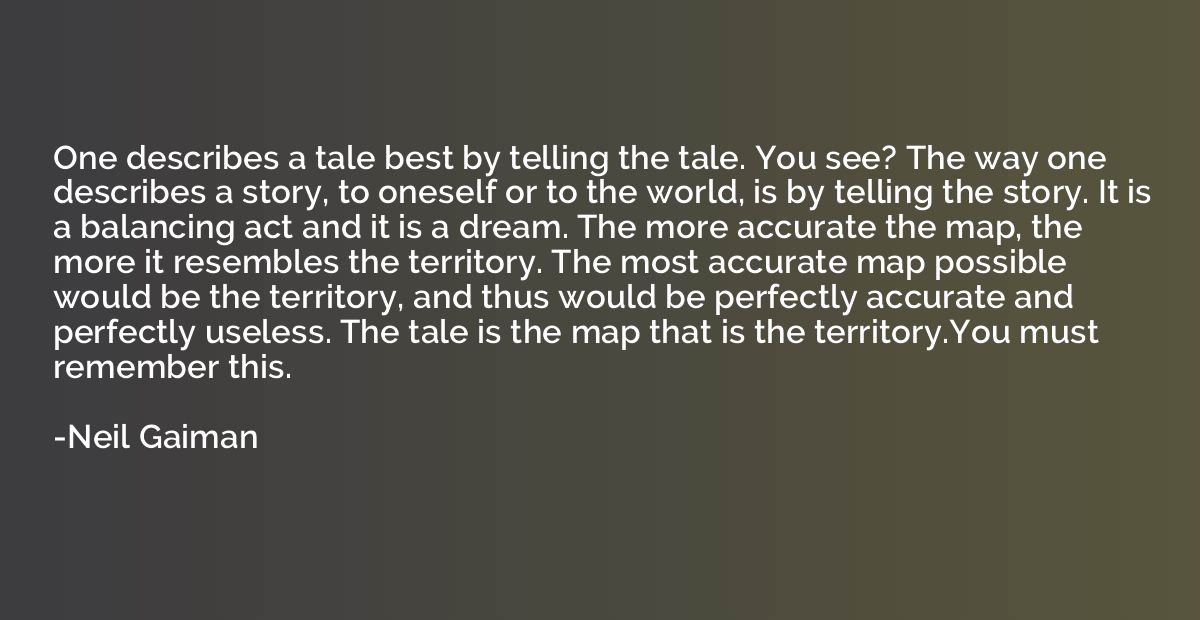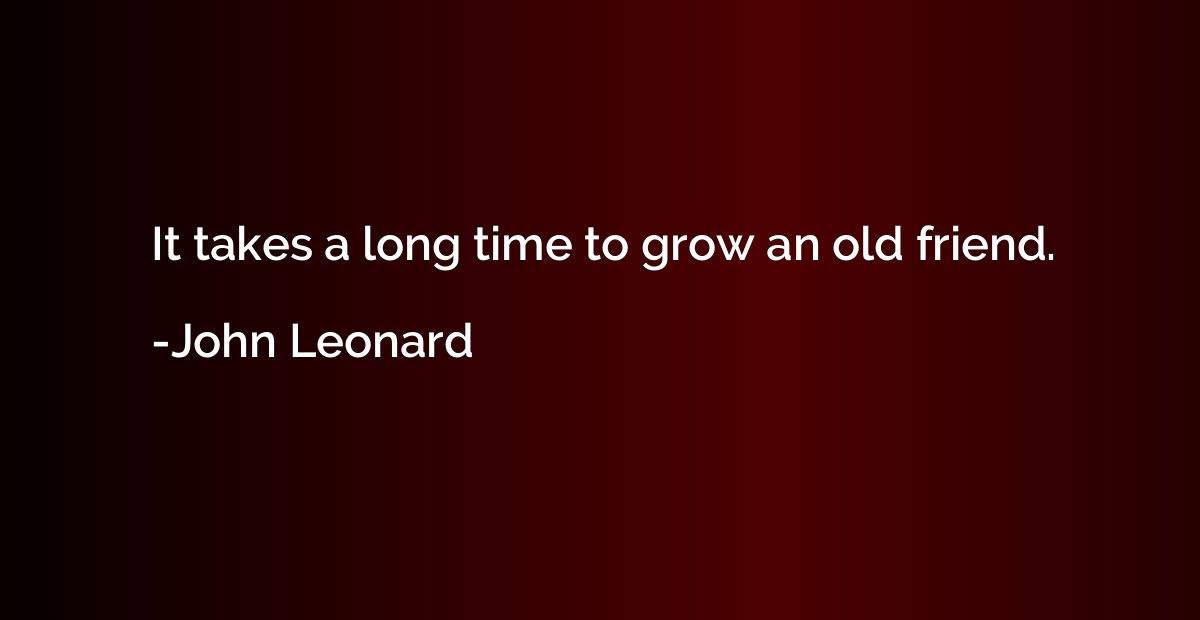Summary
This quote suggests that popular art serves as a reflection or representation of society's desires and aspirations, rather than critically analyzing itself or the social condition it emerges from. Instead of challenging societal norms or questioning the status quo, popular art tends to provide an escape or fantasy for individuals. It implies that popular art may prioritize entertainment or fulfilling societal fantasies over any introspective or analytical examination of the culture from which it arises.
